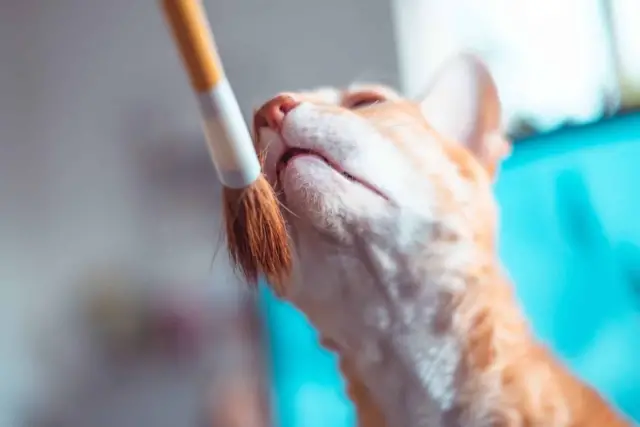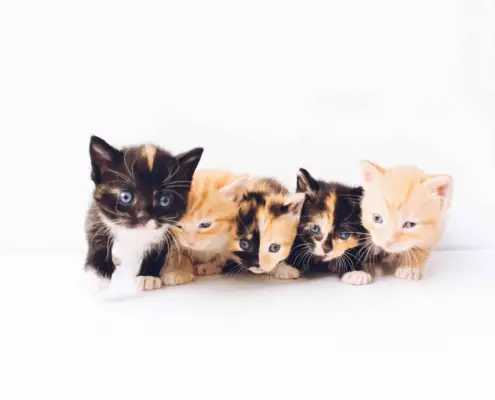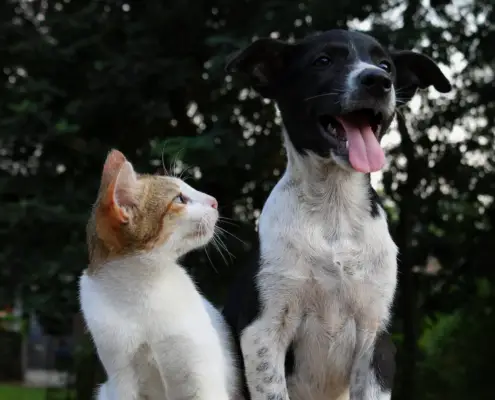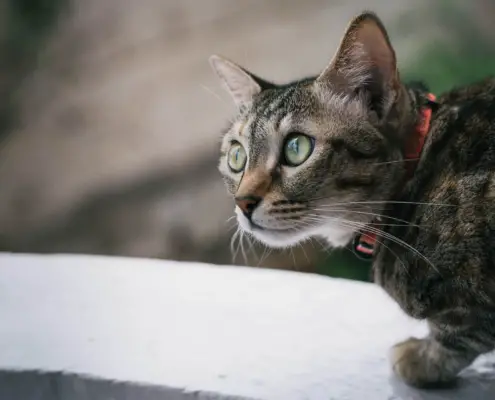
Cats are known for their impeccable grooming habits. They spend a significant portion of their day grooming themselves, keeping their fur clean and tidy. But have you ever wondered why cats bite their claws? It is a behavior that has puzzled many cat owners and researchers alike. In this article, we will delve into the fascinating world of feline grooming and explore the reasons behind this particular behavior.
The importance of grooming for cats
Grooming plays a vital role in a cat’s overall health and well-being. Cats have a natural instinct to keep themselves clean, and grooming helps them maintain their coat in optimal condition. When cats groom themselves, they remove dirt, debris, and dead hair from their fur. This not only keeps their coat looking beautiful but also helps to prevent skin irritations and infections.
Moreover, grooming stimulates the production of natural oils in a cat’s skin, which helps to keep their fur moisturized and shiny. Cats also use grooming as a means of regulating their body temperature. When they lick their fur, the saliva evaporates, creating a cooling effect in hot weather. Conversely, in colder temperatures, the saliva acts as an insulating layer, keeping the cat warm.
Understanding cat behavior: Why do cats bite their claws?
Now let’s explore the intriguing question of why cats bite their claws. Cats have retractable claws that they use for various purposes, such as hunting, climbing, and defending themselves. By biting their claws, cats are essentially sharpening them. When a cat bites its claws, it helps to remove the outer layer, revealing a sharp and fresh surface underneath.
Moreover, biting their claws also helps cats to keep them clean. Cats use their claws for a multitude of tasks, including scratching, and dirt and debris can accumulate on the claws over time. By biting their claws, cats remove any unwanted particles, ensuring that their claws remain free from any potential infections.
The science behind cats biting their claws
The act of biting their claws is not only a grooming behavior for cats but also serves as a form of stress relief. Cats have scent glands in their paws, and when they bite their claws, they release pheromones onto their paws. These pheromones help to mark their territory and provide them with a sense of comfort and security.
Furthermore, the act of biting their claws triggers the release of endorphins in cats. Endorphins are natural chemicals that act as pain relievers and provide a sense of pleasure and relaxation. So, when cats bite their claws, it not only helps them keep their claws sharp and clean but also provides them with a pleasurable and soothing experience.
Benefits of cats biting their claws
There are several benefits to cats biting their claws. Firstly, it helps to keep their claws in optimal condition. By biting off the outer layer, cats expose the sharp part of their claws, allowing them to efficiently engage in activities like hunting, climbing, and scratching. This is crucial for their survival and overall physical well-being.
Secondly, the act of biting their claws provides cats with an outlet for their natural instincts. Cats are instinctually driven to groom themselves and engage in behaviors that help them mark their territory. By biting their claws, cats fulfill these instincts, which contributes to their overall mental and emotional satisfaction.
Common reasons why cats bite their claws
While biting their claws is a natural behavior for cats, there can be instances where this behavior becomes excessive or problematic. Several reasons can contribute to excessive claw biting in cats. One common reason is anxiety or stress. Cats may resort to excessive claw biting as a way to cope with stressful situations or to seek comfort.
Another reason could be a medical issue. Cats may bite their claws excessively if they are experiencing pain or discomfort in their paws. Conditions like arthritis, infections, or injuries can lead to increased claw biting. It is important to monitor your cat’s behavior and consult a veterinarian if you suspect any underlying medical issues.
How to encourage healthy grooming habits in cats
Encouraging healthy grooming habits in cats is essential for their overall well-being. Here are a few tips to promote regular and appropriate grooming behavior in your feline companion:
- Provide a clean and comfortable environment: Cats are more likely to engage in grooming when they feel safe and relaxed. Ensure that your cat has access to a clean litter box, a cozy bed, and a calm environment.
- Regular brushing: Brushing your cat’s fur not only helps to remove loose hair but also stimulates their natural grooming instincts. Make brushing a positive experience by offering treats or praise.
- Provide scratching posts: Cats need an outlet for their natural clawing behavior. Invest in sturdy scratching posts or boards to redirect their clawing instincts away from your furniture.
- Regular veterinary check-ups: Regular visits to the veterinarian can help identify any underlying medical issues that may contribute to excessive claw biting. Keep up with vaccinations, parasite prevention, and routine examinations.
Tips for preventing excessive claw biting in cats
If your cat is biting its claws excessively, there are steps you can take to prevent this behavior from becoming a problem:
- Environmental enrichment: Provide your cat with plenty of toys, climbing structures, and hiding spots to keep them mentally stimulated and entertained. This can help alleviate stress and prevent excessive claw biting.
- Stress reduction: Identify and address any potential sources of stress in your cat’s environment. This could include changes in routine, new additions to the household, or loud noises. Create a calm and predictable environment for your cat.
- Behavior modification techniques: Consider using positive reinforcement training techniques to redirect your cat’s behavior. Reward desired behaviors, such as using a scratching post, and discourage excessive claw biting by distracting your cat with toys or treats.
When to seek professional help for cats that bite their claws excessively
While some claw biting is normal for cats, excessive or persistent claw biting may indicate an underlying problem. If you notice that your cat’s claw biting behavior is worsening, causing injury, or if your cat appears to be in pain, it is important to seek professional help. A veterinarian can perform a thorough examination and diagnostic tests to determine the cause of the excessive claw biting and recommend appropriate treatment.
Appreciating the fascinating nature of feline grooming habits
In conclusion, cats biting their claws is a natural behavior that serves multiple purposes. It helps cats maintain their claws in optimal condition, provides stress relief, and fulfills their natural instincts. Understanding why cats bite their claws can help cat owners appreciate the fascinating nature of feline grooming habits. By promoting healthy grooming behaviors and seeking professional help when needed, we can ensure that our feline companions lead happy and healthy lives.
If you enjoyed my article, I would appreciate you sharing it with your network.

Sima Ndlebe
Sima writes for CatBuzz. He is interested in Cats, Health and Fitness, and Entrepreneurship.
Published: 3 June 2024



